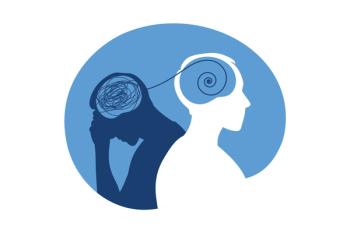
Treatment Approaches to Bipolar 1 Disorder and Associated Comorbidities
Experts in psychiatry discuss common comorbidities associated with bipolar I disorder, highlighting substance use disorders and anxiety.
Episodes in this series

Vladimir Maletic, MD, MS: We have talked about bipolar and comorbidities, what are some of the comorbidities that you screen for? And does it influence your treatment approach?
Andrew Cutler, MD: Absolutely, and actually that’s another one of my clues that I might be dealing with a bipolar patient. The 2 most common comorbidities are substance use disorders and both anxiety as a symptom and as a diagnostic category. When you see a real anxious, agitated depression, sometimes that could be a clue. The third most common is ADHD, usually if patients don’t meet full criteria for ADHD, most of them have some aspects of it, especially problems with sustained attention and working memory. They’re not demented of course, but they do have evidence of cognitive impairment. The fourth most common one, which I love to talk about in steakhouses, is binge-eating disorder. It’s true what you said about neurotransmitters, I think that there’s an element of dopamine dysregulation that goes on here. If you think about it, ADHD, substance use disorder, binge-eating disorders, these are disruptions of the dopamine system, especially motivation reward. That may be why some of our effective medications seem to stabilize the dopamine system.
Vladimir Maletic, MD, MS: Andy, if our patient has a bipolar disorder with comorbid anxiety disorders or ADHD does it influence your treatment approach?
Andrew Cutler, MD: Absolutely, yes, and we should talk about that. First of all, there are 2 large meta-analyses now that look at adding stimulants to patients with bipolar disorder. They found that if the patient is adequately mood stabilized, either with a traditional mood stabilizer or atypical antipsychotic, adding the stimulant not only does not hurt the patient it actually improves their mood, their attention, and various other aspects. That is a situation where I’m a lot more comfortable treating ADHD as I would ADHD without bipolar disorder. Of course, they must be adequately mood stabilized, and I must be comfortable that they’re not going to be actively abusing the medication. For anxiety, that may influence my choice of the baseline, the foundation medication. I tend to use atypical antipsychotics as a foundation, and then I’ll add either lithium or lamotrigine, or perhaps divalproex; they are some of the atypical antipsychotics that appear to be better than others for treating comorbid anxiety. Now we must open the Pandora’s box for a second of a traditional antidepressant. One place where I think there may be a role, specifically for SSRIs [selective serotonin reuptake inhibitors], is somebody who has a real obsessional anxiety picture. A little serotonin may help with obsessionality, but in general, I try to avoid what I call traditional antidepressants or non-mood stabilizing antidepressants. The short answer to your question is absolutely that’s going to influence my treatment, and I think we need to individualize our treatment plans.
Transcript edited for clarity
Newsletter
Receive trusted psychiatric news, expert analysis, and clinical insights — subscribe today to support your practice and your patients.








